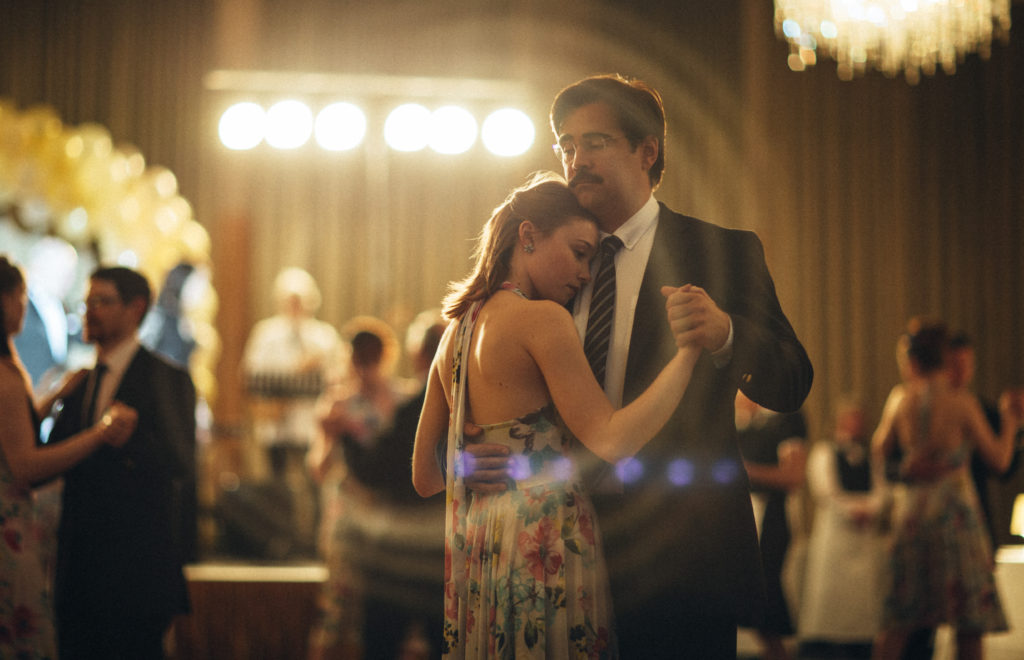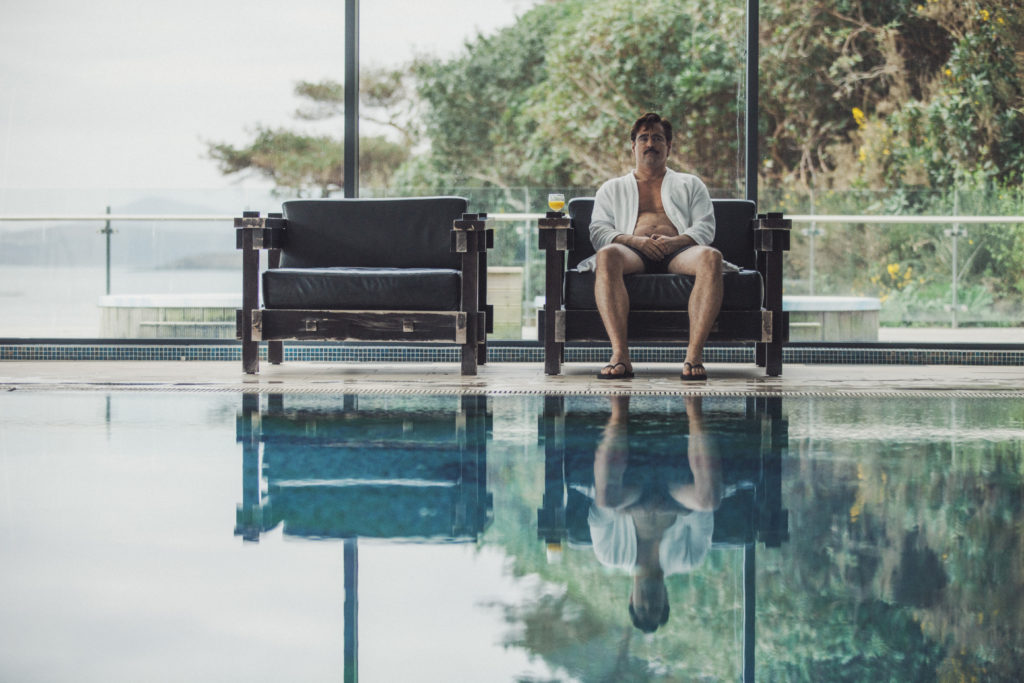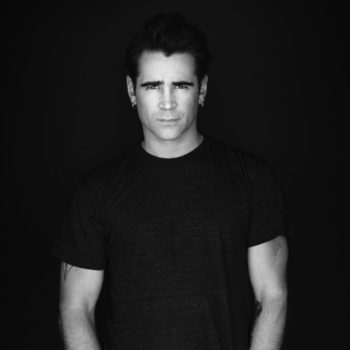Colin Farrell has starred in films from some of the world’s great directors, including Steven Spielberg’s “Minority Report” and Terence Malick’s “The New World.” And he won a Golden Globe for playing a thickheaded hitman in the indie classic “In Bruges.”
Colin’s new film is the dark, absurd comedy “The Lobster.” It’s from filmmaker-slash-provocateur Yorgos Lanthimos. Last year it won the Jury Prize at Cannes. It’s about a dystopic world in which single people are forced to live together in a hotel and find a mate within 45 days… or else they’re turned into an animal of their choosing, and released into the wild.
Interview Highlights:
On what he thought when he first read the script
That the writers of it, both Yorgos, who directed the film, and his writing partner Efthymis Filippou, probably need incredible therapeutic support. Because it was just so twisted and so absurd. And then, I found it, ultimately, very moving, and this kind of bizarre sweetness was pervasive through the whole script — or not through the whole script, but certainly towards the end when Rachel Weisz’s character comes into the film.
On his strong response to Yorgos’ previous film “Dogtooth”
I had seen “Dogtooth.” So, I got a call from my agent saying, “Look, there’s a film that’s being directed by a director who made a film before, five years ago, called ‘Dogtooth,'” and I had…as soon as my agent said “Dogtooth,” I thought, oh, my God. That film!” Because myself and my sister had caught it on a quiet weekday night in a theater in Philadelphia, and we came out, and I remember being in the car-park with my sister going, what was that we just saw?
It was so brilliant, and so disturbing, and so meticulous in how it was shot, and the performances, the tone of the performances, and the tone of the whole film. And so, when I heard that it was that same filmmaker that was doing his first English-language film, I was very excited to read the script. And as I said, I read, and I loved it.
On “The Lobster” being a possible critique of online dating
I mean, I think, as human beings, our quest and our journey to try and find a mate to share our lives with is constantly changing. And there are opportunities that are presented to us… through social media and through online dating, and so on, so forth, and I think everything is worth exploring.
I don’t know that there’s any more truth in a man and a woman or a man and a man meeting in a bar, you know, six drinks in at two o’clock in the morning on a Friday night more than having to introduce yourself to them online.

I don’t know. I know it’s easy to stigmatize that, but I think it’s… you know, it asks questions, this film, possibly about freedom. About the nature of desperation and needing to believe that which somebody else tells you is a right or wrong way to live your life.
I do believe it is — you know, through David, my character, and Rachel’s character, the “Short Sighted Woman” — I do believe that their quest is the pursuit of what love means to them individually, as opposed to what it’s been declared as through a system.
On how gaining weight for the role helped him get (and stay) into character
The film was so unusual and was such a departure, I think, for most of us that it really helped me just to physically be able to step aside from the space I was used to inhabiting as a man and moving in a particular way.

And also, it was a costume that wouldn’t come off. I literally was that size purely for David. So, even if we’d wrap a day’s work and I’d go back to my room, I was still stuck with David. Like, what felt like a million miles away from any weight that I’d known my body before, you know?
On the question he’s tired of being asked
“Why are you so quiet tonight?”
I just remember, if you ever had it, you’re sitting around a dinner table, and maybe you’re uncomfortable, or maybe you’re just a bit down or tired or something, or maybe you’re not. Maybe you’re okay in your silence, but you’re a little bit more quiet, maybe, than you usually are, and somebody shouts across the table, “You’re quiet tonight. What’s wrong?” You know, that kind of thing.
What good can come of it? Like, honest to God, if you really care, come over and whisper it in my ear.
On his participation with the Homeless World Cup
The Homeless World Cup is exactly what it sounds like. It’s a soccer tournament, a football tournament that takes place once a year in whatever the particular city is that year. Two years ago, it was Santiago, Chile. Last year, it was Amsterdam.
It’s amazing. It’s really helping people get their lives together.There are now outreach programs that are helping people, you know, get off methadone, and helping people be reintroduced to the workforce, and, of course, being an actor, I’m trying to, emotionally and financially, capitalize on that by making a film about it.It’s one of the few times where maybe, and I’m just saying maybe — I’m not saying this is an act of altruism — but maybe film can promote some greater social awareness for it for a cause that really is often neglected.
[This interview has been edited and condensed.]


